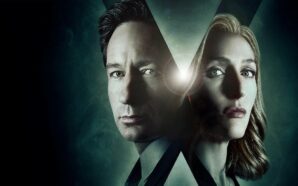I finally managed to get round to finishing HBO’s true “crime” documentary “The Jinx” and feel that it probably hasn’t been given the coverage it deserves.
I had heard a few rumblings online that my enjoyment of Netflix’s smash hit documentary about Steven Avery would be equalled if not bettered by The Jinx; but I hadn’t found the time to get round to it until now.
For those of you unaware of ‘The Jinx: The Life and Deaths of Robert Durst’ (to give it its full title) has a slightly different theme running through it than its Netflix counterpart. The Jinx examines the life and times of one of the sons of one of New York’s most influential real estate icons the Durst Organisation. Using a mixture of interviews and dramatizations, The Jinx is a compelling and foreboding narrative which plots a seven year investigation by the documentary team into a series of unsolved crimes with one clear pattern.
Unlike Making a Murderer that delves into the conspiracy circles of police corruption or incompetent coincidence, The Jinx strings along a theme shrouded in mystery and edges you further and further into the murky world of Robert Durst’s life. Long buried information is uncovered and the twists and turns of this tale seem to be like something straight out of a Hollywood script- drawing you in after the end of every ‘act’. So much so that Hollywood actually jumped on the bandwagon with the film ‘All Good Things’ starring Ryan Gosling taking it’s fundamentals from the Durst legacy. There are “coincidences” which genuinely had me with my jaw open and the documentary does a fantastic way of building tension without standing still so long on one particular element or theme.
What I particularly liked about the show was that it took the time to perhaps show some of the inner turmoil of putting together programmes of this ilk, but it also provided a deeper attachment to the team; it made me feel personally invested in their endeavours. For some unknown reason I found myself drawn to director Andrew Jarecki and actually at times found myself rooting for his success in uncovering/producing the story than the development of the ‘character’ of Robert Durst himself.
Without heading in to spoiler territory, the close proximity to these crimes tended to make my skin crawl when Durst is on the screen. Yes Making a Murderer explained how evidence was found outside Avery’s back window but that didn’t really make sense did it?! The kicker for this story comes towards the back end of programme where courtroom testimony and footage perhaps plays more of an impactful role than the 4-5 hours used in Making a Murderer; it was used more strategically.
The ultimate point in my opinion which makes The Jinx a more compelling story to that of Making a Murderer is quite simply it’s narrative. Perhaps it could have been the fascination of putting the microscope onto a part of society which has so commonly been vilified in a number of ways; the top 1% of people who live detached from the world of the common man or woman. Or perhaps it was portrayal of the main character (Durst) and the view of him personally which had me invested more in wanting to see justice served.
I can’t delve much deeper into the life and times of Robert Durst which are covered so succinctly in the documentary without heading to spoiler territory.
I must admit though that “I did not tell the whole truth. Nobody tells the whole truth”; Truer words never spoken Mr. Durst. Truer words never spoken.
For all things MeteCritic follow me on twitter @MeteCritic and don’t forget to show some #OOL love to all of the great blogs and podcast’s!








